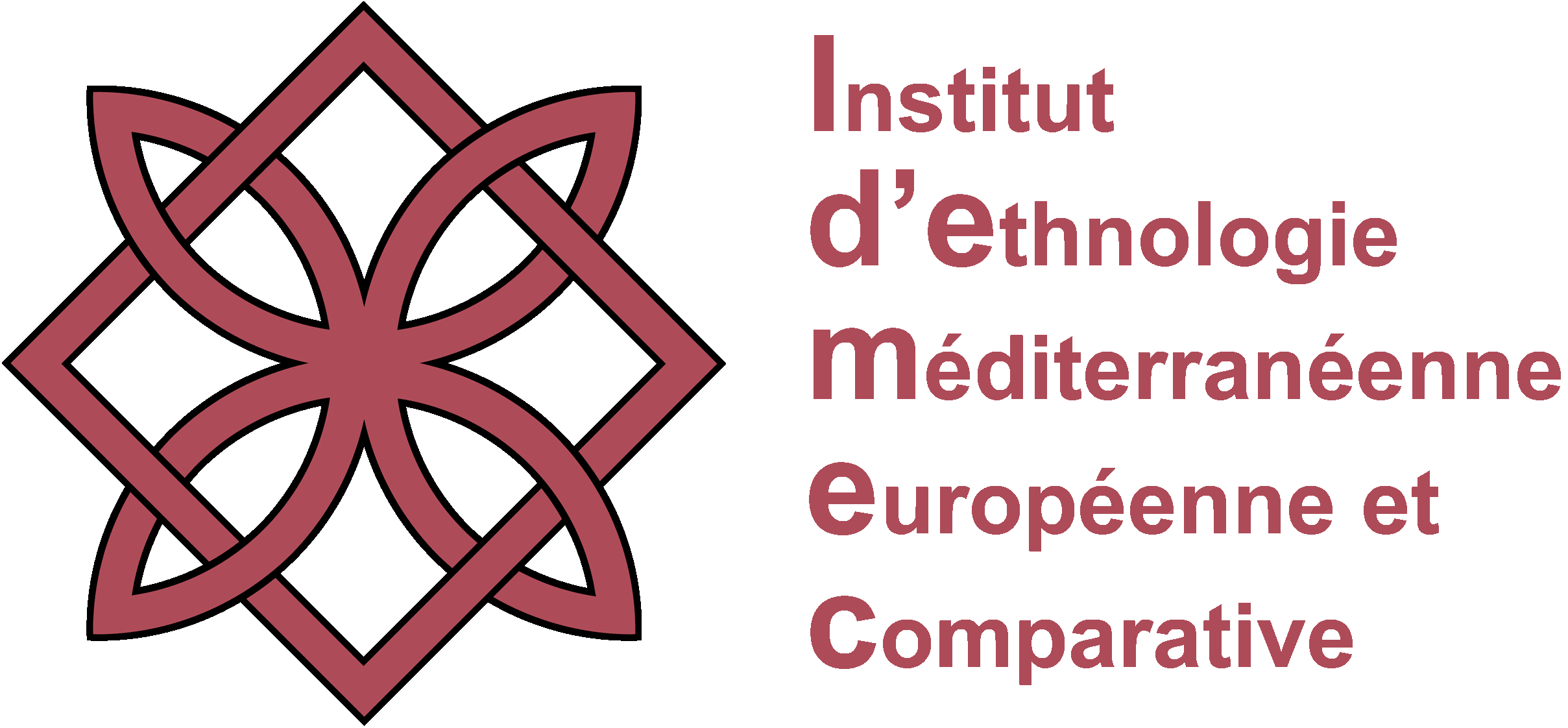Maison Méditerranéenne des Sciences de l’Homme (MMSH)
Centre national de la recherche scientifique


Description
Within CNRS, the Maison méditerranéenne des sciences de l'homme (Mediterranean House of the Humanities - MMSH) is a research and training campus specialized in Mediterranean studies and research, with 350 staff members and 1 PhD programme gathering together 256 PhD students (Archaeology, History, Languages & Literature, Sociology, Anthropology, Geography, Urban Studies, Muslim World Area Studies, African Studies). MMSH hosts 11 research units gathering together historians, geographers, demographers, anthropologists, archaeologists and sociologists. MMSH is operated by both CNRS and Aix-Marseille University.
Role in SfaxForward
MMSH will contribute to SfaxForward by furnishing its studies, interdisciplinary analysis protocols and results on the evolution of Muslim societies, particularly those of Tunisia (where MMSH researchers have long been involved), within an environment that has been adapted and transformed to suit these societies’ needs (notably via industrialization). The MMSH teams (some of which boast nearly six decades of research experience) study the means and methods of Heritage construction, both Tangible Heritage (archaeology and architecture, crafts and industry) and Intangible Heritage (notably oral literature and music, as well as Heritage ideologies), with a focus on migratory and mobility phenomena throughout the Mediterranean and political themes, most notably those concerning the “commons” and public services. Complementing its scientific input, MMSH will contribute to the project within the domains of capacity-building (Work package “Management”) and the digital Humanities (Work package “Communication”).
Involved Research Units

The Camille Jullian Centre (CCJ) is a research laboratory dedicated to archaeology and ancient history and focusing on the Mediterranean basin and North Africa, from the Protohistoric Period to late Antiquity.

The Institute of Mediterranean, European and Comparative Ethnology (IDEMEC) carries out comparative studies on the European, Mediterranean and Middle Eastern worlds. For each of these domains – and, in particular, for each Mediterranean and Middle Eastern “region” (from Iran to Morocco, the Balkans to Italy) – the laboratory gathers together specialists and a unique documentation base.

Time, Spaces, Languages of Southern & Mediterranean Europe (TELEMME) is a multidisciplinary laboratory gathering together historians studying the medieval, modern and contemporary periods, Hispanists and art historians, all specialists of the Mediterranean basin, from the Iberian Peninsula to the Balkans, Southern France to Italy. Its chronological focus stretches from the Middle Ages to the contemporary period.

The Mediterranean Laboratory of Sociology (LAMES) is MMSH’s research unit specialized in sociology. LAMES pursues research under four main cross-disciplinary themes: 1) urban and environmental sociology, 2) migrational sociology, 3) educational and cultural sociology, and 4) the sociology of deviance. LAMES is coordinator of MMSH’s Demographic Observatory of the Mediterranean (DEMOMED), which includes demographers, statisticians, geographers and prospective experts.
Key person
Solenn de Larminat (F) is the Manager Project of SfaxForward for the Mediterranean House of the Humanities. She holds a PHD in archaeology at Aix-Marseille University. Since 20 years, her research has focused mainly on funeral practices in Roman Africa with a specialty in archaeothanatology. Since 2017, she is participating in a field training, research and development on the site of Thaenae (near Sfax) with researchers of the Institut National du Patrimoine (INP) and the Universities of Sfax and Paris 1. She contributes to the project coordination, training and the implement of the international mobilities.
Sophie Bouffier (F) is University Professor at Aix-Marseille University (AMU), Director of the Maison méditerranéenne des sciences de l’homme (“Institute of Mediterranean Studies in social sciences and Humanities”). She studied at the Ecole Normale Supérieure de Paris and was a member of the Ecole Française de Rome. Her research has focused on the hydraulic heritage of the Ancient Mediterranean, within the framework of Greek expansion during the first millennium BCE, and she has directed several programs about Water Management in Antiquity, funded by the French nationalprogramme “Investissements d’avenir” (HYDROSYRA, HYDRΩMED, WaterTraces). She has notably studied the regions of Sicily, Southern France and Albania.
Jean-Luc Arnaud (M) is a historian, senior researcher (CNRS) at the TELEMMe research unit (CNRS-AMU-MMSH). He is head CartoMundi, a programm dedicated to the online promotion of the cartographic Heritage. He has been in charge of the Urban Observatories of Cairo and Beyrouth, and a researcher at the French research Center – IRMC – of Tunis. His work is shared between two subjects. 1. Urban history of the main arabic and ottoman towns during comtemporary period. 2. History of the cartographic representations of the mediterraneans towns and countries.
Sylvie Daviet (F) is University Professor at Aix-Marseille University (AMU), currently Vice President for International Relations. Former President of the Economic Geography Commission for the French National Geography Committee (CNFG), she has focused her research on relations between companies and territories, and the challenges posed by globalization, territorial development and energy transition. She notably served for two years as a CNRS researcher at IRMC (Contemporary Maghreb Research Institute) in Tunis, where she supervised a programme on trans- Mediterranean entrepreneurship.
Cyril Isnart (M) is a Research Fellow at the CNRS (IDEMEC). As an anthropologist, he investigates heritage practices within traditional music and religious contexts in southern Europe and the Mediterranean. Co-founder of the network Respatrimoni, he also coordinated the international programme Merap-Med on religious memory and heritage assertion in the Mediterranean (2013- 2015). He is the editor of Lusotopie and, among others, he co-edited Les vocabulaires locaux du“patrimoine” (Lit Verlga, 2014), Tourism and Transformation: Negotiating Metaphors, Experiencing Change (International Journal of Tourism and Cultural Change, 2014), and Fabrique du tourisme et expériences patrimoniales au Maghreb. XIXe-XXIe siècles (Centre Jaques Berque, forthcoming).
Daniel Faget (M) is an HDR-certified Maître de Conférences (Lecturer) of Modern History at Aix- Marseille University and member of the TELEMMe laboratory. His research focuses on analysing relations developed between human societies and the Mediterranean marine environment over a long duration (16th to 21st centuries). His studies are therefore structured around the history of marine pollutions, the evolution of marine biodiversity and the techniques employed by fishing communities to exploit natural marine resources. The notion of human and environmental resilience is central to his studies and publications.
Ghislaine Gallenga (F) is a Maîtresse de Conférences (Lecturer) of Anthropology at Aix-Marseille University (AMU) and researcher at IDEMEC. For some fifteen years, she has carried out research concerning the anthropology of companies/businesses. Her work focuses on epistemological explorations of the business world and of the commons, as well as on field surveys of public service transformations within the Mediterranean.
Béatrice Mésini (F) is a researcher at CNRS, attached to the TELEMMe research unit. Her work is organized around two complementary themes: 1. The interactions between nature and society and the adaptations of human societies to environments; 2. The transformations of societies and spaces in terms of spatial planning methods (coastal, rural, urban) and the political and social management of the environment. Her work also explores the anthropization and degradation of resources, the ecological impacts of modes of production, the effects and consequences of pollutions, and environmental conflicts.
Michel Bonifay (M) is Director of Research (CNRS) at the Camille Jullian Centre. Currently coordinator of the CCJ transverse research axis “History and Archaeology of Ancient Maghreb”, his research interest mainly focuses on ceramics of Roman Africa (production, typo-chronology and distribution) and their economic significance. Since 2017, he has participated in a training, research and development project in archaeology with the Institut National du Patrimoine (National Heritage Institute – INP) and the Universities of Sfax and Sousse, including field training on the archaeological site of Thaenae (near Sfax).
Constance de Gourcy (F) is a sociologist, Maîtresse de Conferences (Lecturer) at Aix-Marseille University (AMU) and researcher at the LAMES unit. She pursues research within the field of international migrations, exploring mobilities between the northern and southern Mediterranean rims. She is a Fellow of the Global Department of the Institut de Convergences sur les migrations (Institute of Convergences on Migrations).
Xavier Daumalin (M) is Professor of Contemporary History at Aix-Marseille University (specialization: economic history) and Director of the TELEMME research unit. He is specialized in the economic history of Southern France during the 19th and 20th centuries. His research focuses on commerce and trade, colonial exchanges, industrial dynamics, family-based capitalism and immigrant manual labour, as well as industrial risks and pollutions and deindustrialization.
Fabien Bartolotti (M) is a contractual PhD student in charge of teaching contemporary history at the TELEMME research unit. The doctoral thesis he is preparing – under the supervision of Pr. Xavier Daumalin and based upon the archives of the Marseille Port – is entitled: “The Port of Marseille confronted with the economic upheavals of the 1945-1992 period: rhythms, stakeholder strategies and environmental challenges”. His research project focuses on port extension dynamics around the Gulf of Fos, compared to other Mediterranean situations, and the industrial, commercial and ecological problems these dynamics engender.
Delphine Cavallo (F) is a CNRS engineer in charge of digital dissemination activities and scientific mediation in the TELEMME research unit (CNRS-AMU-MMSH). Delphine Cavallo holds a Master degree in Political Sciences and a Master degree in Economics, as well as a university diploma in arabic. She has developed an expertise on open access and on data management in social sciences and humanities.
The French National Centre for Scientific Research (CNRS) is a government-funded research organization under the authority of the French Ministry in charge of research. CNRS is the leading fundamental research organization in Europe. It is largely involved in national, European and international projects covering all fields of knowledge.

